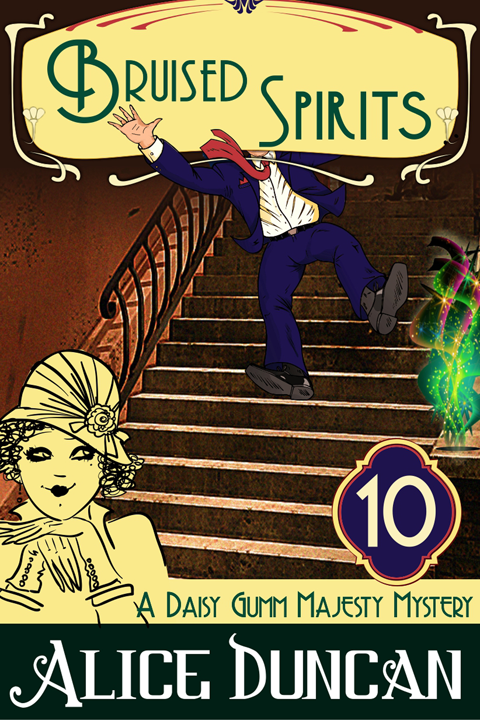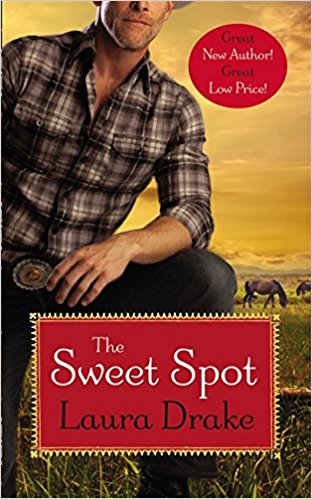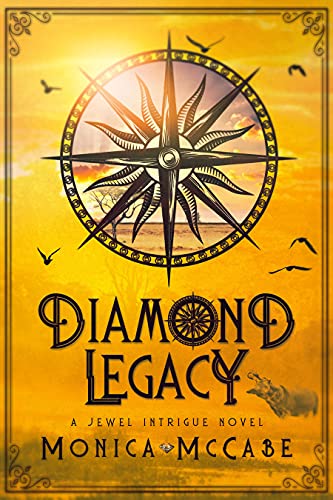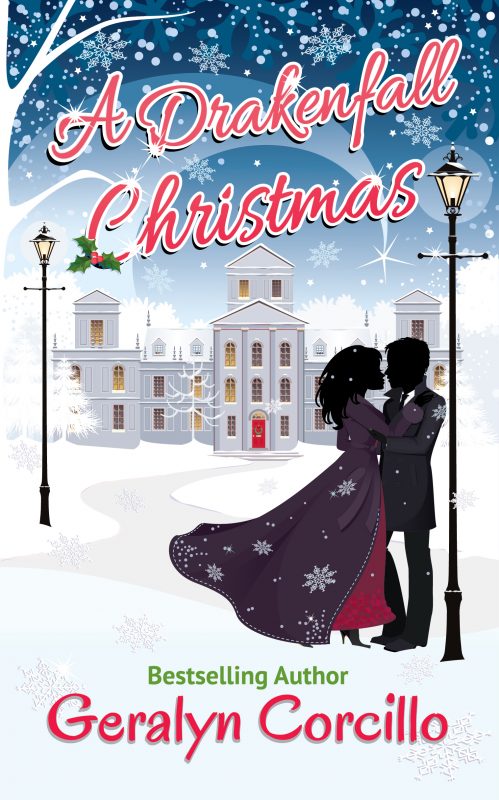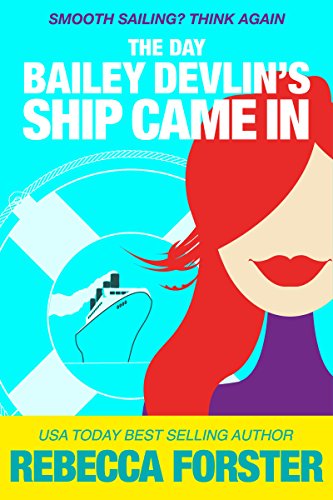How Is Your Grammar Fitness?
May 26, 2014 by A Slice of Orange in category ArchivesOur upcoming OCCRWA Online Class is Grammar that Matters with MM Pollard, editor with Black Velvet Seductions and Grammar Teacher Extraordinaire. She joins us today to talk about the class and to give everyone a little quiz:
Today, almost everyone, it seems to me, is studying, promoting, or writing about physical fitness. I Yahooed “physical fitness†and got over eight million hits, yes the number 8 with 6 zeroes following it.
Editor, Black Velvet Seductions
What changes, you or it?
May 24, 2014 by A Slice of Orange in category ArchivesHow do you fall in love? What is it based on? How can you change how you feel? a friend was asking as she was seeing someone who seemed to be more attracted to her than she was to him. Yet she liked him, enjoyed him, and wished she could reciprocate.
Except it’s not an intellectual exercise is it? There’s a reason that traditionally Cupid is blind. Logic and reason often don’t have much to do with feelings.
And our feelings can change. We have fallen in love with people we’ve known for years. We have fallen out of love with people we have loved for years. Though—on consideration—falling out of love seems to have a lot more intellectual and factual aspects to it than falling in love!
It’s pretty hard to describe what exactly is the change that suddenly transformed ‘someone’ into something beloved. Sometimes there’s an action, a look, an understanding, but it’s pretty ineffable.
Trying to understand the hows and whys that cause us to fall in love with a person seems too complex and big a challenge to wrap our arms around. So let’s consider smaller things.
Can you remember an instance where your attitude changed? Some occurrence that switched your opinion, changed your mind, opened a door, gave you a new perspective, readjusted your thinking, caused you to reframe your perception and realign your judgement?
No? OK, here’s one from my files.
Some of you may remember the early days of Clint Eastwood films (directed by Sergio Leone, A Fistful Of Dollars, For A Few Dollars More, etc.). I would declaim to anyone that would listen how unbelievably boring and stupid the films were! They just consisted of Clint Eastwood…
1) Walking onto the screen
2) Obliterating everyone
3) Walking off the screen
4) Walking onto a new screen
5) Obliterating everyone
6) Walking off the screen
etc……
Many would agree. But what stuck in my mind was the one person who looked at me and said, slightly sorrowfully, as if speaking to a somewhat retarded person:
“But…that’s the point.”
Well, the scales fell from my eyes and I was able to utterly reassess my conclusions, realign my expectations and realize—and appreciate—the poetry in motion that this metaphoric Western ballet depicted. Indeed, all Westerns celebrated. Reader, I loved them. Yes, all of them.
Example two, further illustrating my point on how much things—feelings, beliefs, opinions—depend on how you are looking, not actually what you are looking at. So when people say (with a myriad of quotes) ‘you can only change yourself,’ know that you probably change yourself constantly, often easily, and that it has the power to instantly open new worlds.
I remember first moving to NYC and asking, “What is an egg cream?” and always getting the answer, “It’s an ice cream soda, without the ice cream.”
Are you with me here? Huh? Why would anyone ever want an ice-creamless ice cream soda? I mean, Hello? WTFP? (What’s The F**king Point?). Given that the point of having an ice cream soda is, in fact, THE ICE-CREAM. That’s why it’s the lead!
I wandered through Manhattan really feeling pretty sad about New York and their delight in creating and ordering an ice cream soda…hold the ice cream. Indeed, I—I admit it—would occasionally indulge in a little rant about the cosmic stupidity of the concept.
Until finally someone said—slightly sorrowfully, as if speaking to a developmentally disabled person: “It’s not an ice cream soda without the ice cream. It’s an enhanced Cokeâ„¢.”
The scales fell from my eyes and I was able to reassess my conclusions, realign my expectations and realize—and appreciate—the nectar of the gods this delightful fizzy fresh and thirst quenching ambrosia offered. Reader, I loved them.
And consider all these challenges to reread books you’ve read in the past—Practical Classics and others I can’t immediately locate with search, or numerous articles over the years all illustrate how you, not “it” changes, and how amazing that is, because the world we see changes as we do, endlessly new, never entirely known.
Think about it….
Isabel Swift
“Why do you go away? So that you can come back. So that you can see the place you came from with new eyes and extra colors. And the people there see you differently, too. Coming back to where you started is not the same as never leaving.†― Terry Pratchett, A Hat Full of Sky (but of course time changes you, even if you never leave)
Celebrating Indies with Their Own Magazine: InD’Tale
May 15, 2014 by A Slice of Orange in category Archives tagged as book review, promotion, publicity| InD’Tale’s TJ MacKay & me |
Late Because of Malice
May 7, 2014 by A Slice of Orange in category ArchivesMy apologies for posting this late, but I just returned from Malice Domestic, a conference for cozy mystery writers and readers. And then I got to stop in
Show and Tell, OCCRWA’s May Online Class with Shannon Donnelly
April 27, 2014 by A Slice of Orange in category Archives tagged as Online Class, Shannon Donnelly, writing craftShannon Donnelly is with us today to talk about her upcoming OCCRWA online class, Show and Tell, an Interactive Workshop. Take it away, Shannon!
Thanks Alina. We’ve all heard “show, don’t tell†and there is value in that advice. If all you do is tell a story, how does the reader participate with his or her imagination? However, a book is not a movie. While a movie requires everything to be shown (or an often awkward voice-over to be added if it’s not showing enough), a book has the luxury of being able to use narrative. And that’s where I usually get folks who are utterly confused.
Merriam-Webster gives us the root for narrative/narrating as the “Latin narratus,past participle of narrare, from Latin gnarus knowing; akin to Latin gnoscere, noscere to know.â€
This means any writer of fiction needs not only showing but telling as well. What’s the secret in knowing when to show and when to tell? This is something I’ll be covering in the May workshop, but here are a few tips:
– Where are we? (Place and world – the reader needs to be placed into the scene, otherwise it’s confusing to the reader. Do not throw your readers into the deep end without giving them some help.)
– Who is here?(An introduction to the characters, particularly to the main characters for that scene, and for the story.)
All this needs to be woven together, stitched in with careful threads, not dumped on the reader in big clumps. Or, to put it another way, feed the reader your telling—your narrative—with a teaspoon, not a soup bowl.
– Your characters in action—scenes are always stronger when you show a character expressing emotion with physical reactions.
– Your character’s emotions through words. Dialogue should never just be there to advance the plot or you end up with a character that seems stiff on the page. Just as you want to show emotions through actions, you also want to show emotion through words—this includes what someone avoids talking about, too.
Her Regency Historical Romance, Paths of Desire, can be found as an ebooks on Kindle, Nook and at Smashwords, along with her Regency romances.
Affiliate Links
A Slice of Orange is an affiliate with some of the booksellers listed on this website, including Barnes & Nobel, Books A Million, iBooks, Kobo, and Smashwords. This means A Slice of Orange may earn a small advertising fee from sales made through the links used on this website. There are reminders of these affiliate links on the pages for individual books.
Search A Slice of Orange
Find a Column
Archives
Featured Books
BRUISED SPIRITS
It's 1924 and Daisy Gumm bands with friends to help Lily Bannister, whose abusive husband nearly killed her.
More info →DIAMOND LEGACY
Diamonds ruined his life and he’s on a path of revenge.
More info →A DRAKENFALL CHRISTMAS
At the English country estate Drakenfall, Christmas is topsy-turvy, romantic, and heartwarming!
More info →THE DAY BAILEY DEVLIN’S SHIP CAME IN
Oh, Boy! Oh, Bailey!
Just when you think it's going to be smooth sailing, Venus messes with your rudder.
Newsletter
Contributing Authors
Search A Slice of Orange
Find a Column
Archives
Authors in the Bookstore
- A. E. Decker
- A. J. Scudiere
- A.J. Sidransky
- Abby Collette
- Alanna Lucus
- Albert Marrin
- Alice Duncan
- Alina K. Field
- Alison Green Myers
- Andi Lawrencovna
- Andrew C Raiford
- Angela Pryce
- Aviva Vaughn
- Barbara Ankrum
- Bethlehem Writers Group, LLC
- Carol L. Wright
- Celeste Barclay
- Christina Alexandra
- Christopher D. Ochs
- Claire Davon
- Claire Naden
- Courtnee Turner Hoyle
- Courtney Annicchiarico
- D. Lieber
- Daniel V. Meier Jr.
- Debra Dixon
- Debra H. Goldstein
- Debra Holland
- Dee Ann Palmer
- Denise M. Colby
- Diane Benefiel
- Diane Sismour
- Dianna Sinovic
- DT Krippene
- E.B. Dawson
- Emilie Dallaire
- Emily Brightwell
- Emily PW Murphy
- Fae Rowen
- Faith L. Justice
- Frances Amati
- Geralyn Corcillo
- Glynnis Campbell
- Greg Jolley
- H. O. Charles
- Jaclyn Roché
- Jacqueline Diamond
- Janet Lynn and Will Zeilinger
- Jaya Mehta
- Jeff Baird
- Jenna Barwin
- Jenne Kern
- Jennifer D. Bokal
- Jennifer Lyon
- Jerome W. McFadden
- Jill Piscitello
- Jina Bacarr
- Jo A. Hiestand
- Jodi Bogert
- Jolina Petersheim
- Jonathan Maberry
- Joy Allyson
- Judy Duarte
- Justin Murphy
- Justine Davis
- Kat Martin
- Kidd Wadsworth
- Kitty Bucholtz
- Kristy Tate
- Larry Deibert
- Larry Hamilton
- Laura Drake
- Laurie Stevens
- Leslie Knowles
- Li-Ying Lundquist
- Linda Carroll-Bradd
- Linda Lappin
- Linda McLaughlin
- Linda O. Johnston
- Lisa Preston
- Lolo Paige
- Loran Holt
- Lynette M. Burrows
- Lyssa Kay Adams
- Madeline Ash
- Margarita Engle
- Marguerite Quantaine
- Marianne H. Donley
- Mary Castillo
- Maureen Klovers
- Megan Haskell
- Melanie Waterbury
- Melisa Rivero
- Melissa Chambers
- Melodie Winawer
- Meriam Wilhelm
- Mikel J. Wilson
- Mindy Neff
- Monica McCabe
- Nancy Brashear
- Neetu Malik
- Nikki Prince
- Once Upon Anthologies
- Paula Gail Benson
- Penny Reid
- Peter Barbour
- Priscilla Oliveras
- R. H. Kohno
- Rachel Hailey
- Ralph Hieb
- Ramcy Diek
- Ransom Stephens
- Rebecca Forster
- Renae Wrich
- Roxy Matthews
- Ryder Hunte Clancy
- Sally Paradysz
- Sheila Colón-Bagley
- Simone de Muñoz
- Sophie Barnes
- Susan Kaye Quinn
- Susan Lynn Meyer
- Susan Squires
- T. D. Fox
- Tara C. Allred
- Tara Lain
- Tari Lynn Jewett
- Terri Osburn
- Tracy Reed
- Vera Jane Cook
- Vicki Crum
- Writing Something Romantic
Affiliate Links
A Slice of Orange is an affiliate with some of the booksellers listed on this website, including Barnes & Nobel, Books A Million, iBooks, Kobo, and Smashwords. This means A Slice of Orange may earn a small advertising fee from sales made through the links used on this website. There are reminders of these affiliate links on the pages for individual books.


